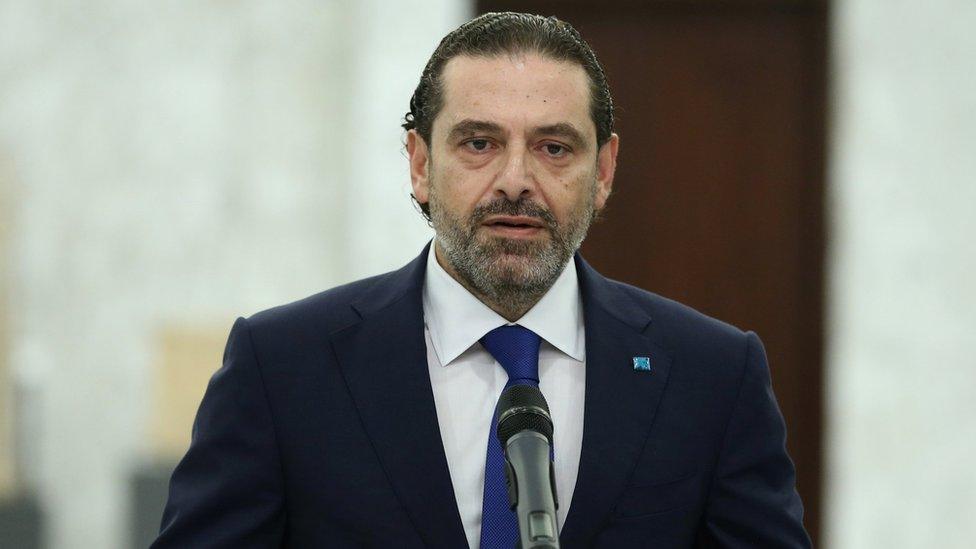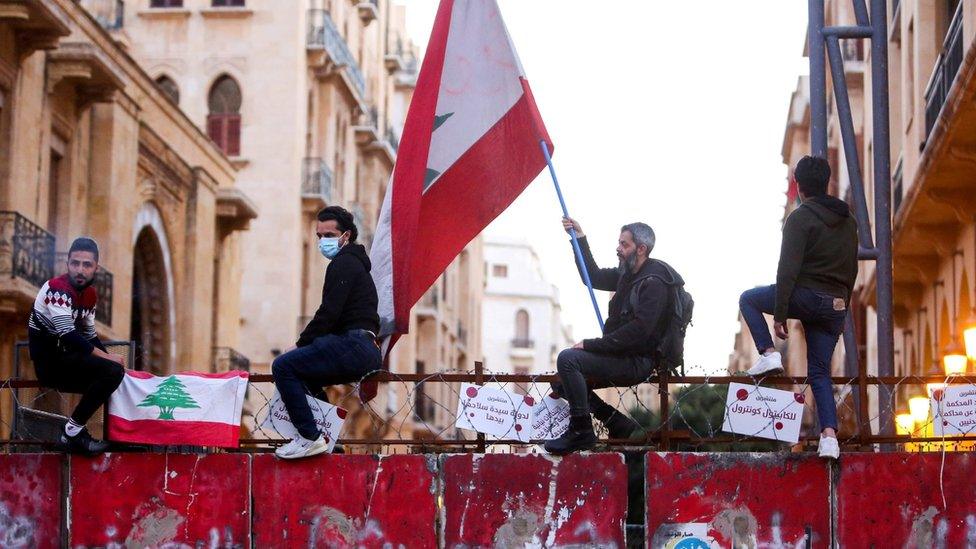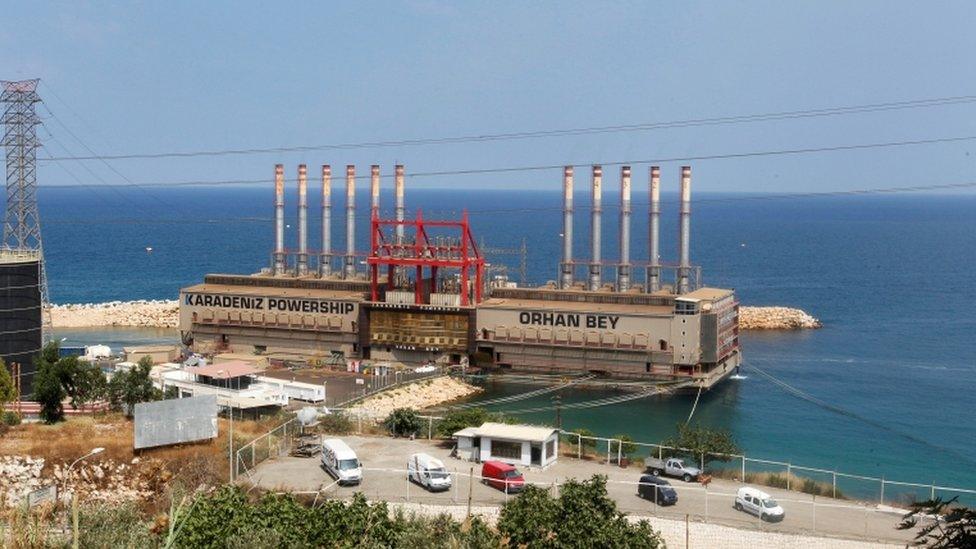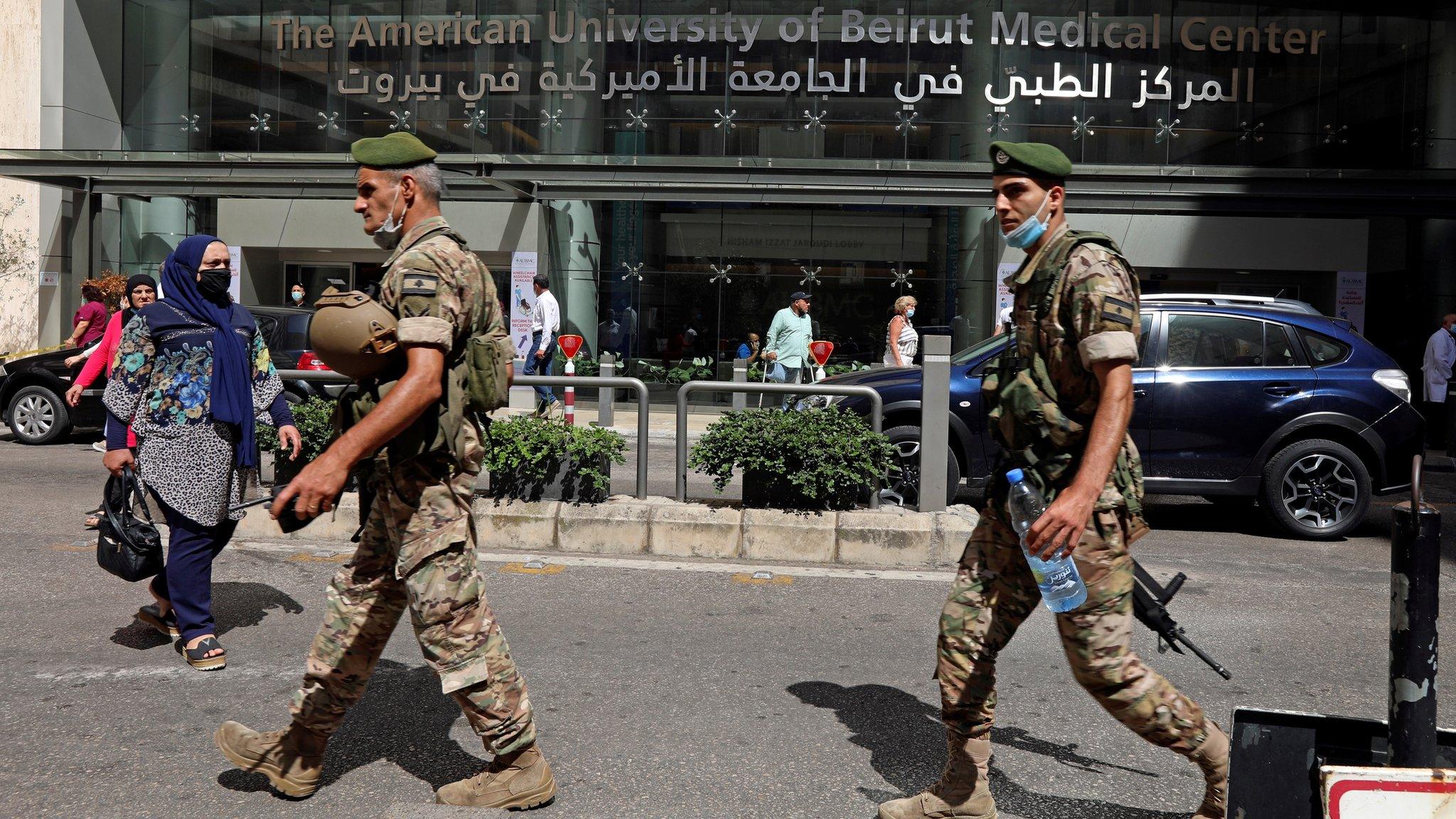Lebanon crisis deepens as PM-designate quits over cabinet deadlock
- Published

Saad Hariri has seen several proposed cabinet line-ups rejected by the president
Lebanon's Prime Minister-designate Saad Hariri has given up trying to form a new government after nine months of deadlock over its make-up, pushing the country deeper into crisis.
Mr Hariri said it was clear that he would not be able to agree on cabinet positions with President Michel Aoun.
The last government resigned in the wake of the massive explosion in Beirut in August that killed 200 people.
Since then, Lebanon's severe economic depression has got worse.
A currency collapse has caused inflation to skyrocket and left people unable to buy food, while supplies of fuel, electricity and medicine are running short.
The World Bank has blamed the situation on Lebanese politicians being unable to agree on a way forward.
Other countries have refused to provide billions dollars of aid until they form a new government that can implement reforms and tackle corruption.
Six-year-old Sedra is one of the people whose lives have been put at risk by Lebanon's energy crisis
Mr Hariri was nominated by members of parliament to form a new government last October, only a year after he had stepped down as prime minister in the face of mass anti-government protests that were triggered by the start of the country's economic collapse.
The pro-Western, Sunni Muslim politician promised to quickly agree a cabinet of technocrats, or non-partisan specialists, who would enact reforms.
But Mr Aoun, a Maronite Christian ally of the Iran-backed militant Shia Hezbollah movement, rejected multiple line-ups that he proposed.
Mr Hariri accused the president and his party of trying to dictate appointments to gain veto power for their allies, while they accused Mr Hariri of seeking to do the same for his own supporters.
On Wednesday, he submitted a new list of 24 technocratic ministers, describing it as "the moment of truth".
But after a brief meeting on Thursday, he told reporters the president had requested "fundamental" changes he could not accept.
He said he had offered to give the president more time to reconsider, but added: "It is clear we will not be able to agree."
"That is why I excused myself from forming the government. May God help the country."
In a statement, Mr Aoun said: "What is the use of one additional day if the door to discussions was closed."
He added that he would soon set a date for consultations on a replacement.
Under Lebanon's sectarian power-sharing system, the prime minister must be a Sunni, the president a Christian, and the speaker of parliament a Shia.
Related topics
- Published4 July 2021

- Published14 May 2021

- Published17 June 2021
